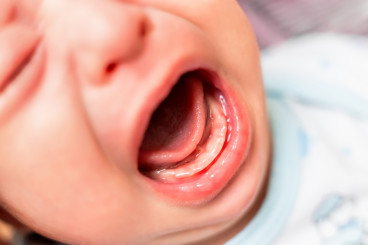Viral Culture
A viral culture is a specialized diagnostic test performed by dental professionals to identify the presence and type of viral infection within the oral cavity. This procedure plays a vital role in the accurate diagnosis and effective management of various viral diseases that can affect the teeth, gums, and surrounding oral tissues.
The oral cavity is a complex environment that can harbor a diverse array of microorganisms, including viruses. These viruses can cause a range of dental and oral health issues, from minor irritations to severe, debilitating conditions. Viral cultures are essential in helping dentists determine the specific viral agent responsible for a patient's symptoms, enabling them to develop a targeted and effective treatment plan.
The process of a viral culture typically involves the collection of a small sample from the affected area of the patient's mouth. This sample may be taken from the gums, the inner cheek, the tongue, or any other region where the suspected viral infection is present. The collected sample is then carefully transported to a specialized laboratory for further analysis.
At the laboratory, the sample undergoes a series of carefully orchestrated steps to cultivate and identify the specific virus present. This process begins with the inoculation of the sample onto a specialized growth medium, which provides the optimal conditions for the virus to replicate and proliferate. The sample is then incubated under controlled temperature and humidity levels, allowing the virus to grow and manifest its unique characteristics.
As the virus grows, the laboratory technicians closely monitor the sample for any changes or indicators of viral activity. This may include the observation of specific cellular changes, the production of viral proteins, or the release of infectious viral particles. These observations, combined with additional testing techniques, such as immunological assays or genetic analysis, allow the technicians to accurately identify the type of virus present.
Identifying the specific viral agent responsible for a patient's oral health issues is crucial for several reasons. First and foremost, it enables the dentist to develop a targeted and effective treatment plan. Different viruses may require different therapeutic approaches, and a proper diagnosis is essential to ensuring the patient receives the most appropriate care.
Furthermore, the results of a viral culture can help guide the dentist in making informed decisions about the management of the patient's condition. This may include the selection of appropriate antiviral medications, the implementation of specific infection control measures, or the recommendation of lifestyle adjustments to promote optimal healing and prevent the spread of the virus.
In some cases, the results of a viral culture may also have broader implications for public health. Certain viral infections, such as those caused by the herpes simplex virus or the human papillomavirus (HPV), can be highly contagious and may require the implementation of public health strategies to prevent the spread of the disease within the community. The accurate identification of the viral agent through a viral culture can help inform these public health measures and contribute to the overall well-being of the population.
Ultimately, the viral culture is a critical tool in the dental professional's arsenal, providing invaluable insights into the underlying causes of various oral health conditions and enabling the delivery of tailored, evidence-based care to patients. By understanding the importance of this diagnostic procedure, individuals can take a proactive approach to their oral health and work closely with their dentists to ensure the most effective management of any viral infections that may arise.
Don't let a viral infection compromise your oral health. Explore dental treatment options with Dr. BestPrice, the leading platform for affordable and high-quality dental care.



